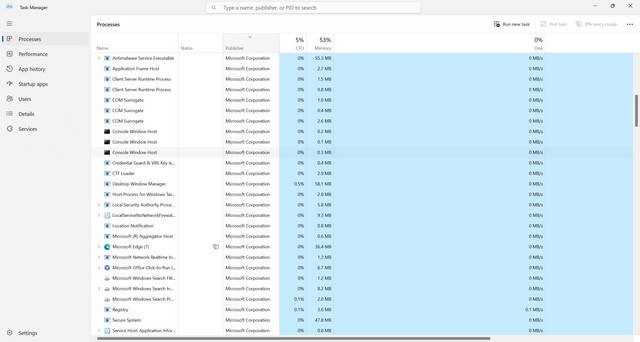If you have ever looked at the processes running on your Windows computer, you may have noticed a program called fmapp.exe. What is this program and should you be worried about it? In this blog post, we will explain what fmapp.exe is, what it does, and whether you should remove it or not.

What is fmapp.exe?
Fmapp.exe is a process that belongs to the Realtek High Definition Audio Driver, which is a software component that enables your computer to communicate with the audio hardware. Fmapp.exe stands for Fortemedia Audio Processing Application, and it is responsible for enhancing the sound quality of your speakers and microphone. Fmapp.exe runs in the background and uses a small amount of CPU and memory resources.
Should I remove fmapp.exe?
Fmapp.exe is not a virus or malware, and it does not pose any security threat to your computer. However, some users may want to remove it for various reasons, such as:
- They do not use the Realtek audio hardware or driver and prefer to use another sound card or driver.
- They experience problems with the sound quality or performance of their audio devices, such as crackling, distortion, or latency.
- They want to free up some system resources or reduce the number of processes running on their computer.
If you want to remove fmapp.exe, you have two options:
- You can uninstall the Realtek High Definition Audio Driver from the Control Panel > Programs and Features. This will remove the entire driver package, including fmapp.exe and other related files. However, this may also disable your audio devices or cause compatibility issues with other programs that rely on the driver.
- You can disable fmapp.exe from the Startup tab of the Task Manager. This will prevent fmapp.exe from running automatically when you start your computer, but it will not delete the file or affect the driver. You can also re-enable it later if you change your mind.
To disable fmapp.exe from the Startup tab of the Task Manager, follow these steps:
- Press Ctrl+Shift+Esc to open the Task Manager.
- Click on the Startup tab.
- Find fmapp.exe in the list of programs and right-click on it.
- Select Disable from the menu.
- Restart your computer.
Conclusion
Fmapp.exe is a legitimate process that belongs to the Realtek High Definition Audio Driver. It is not a virus or malware, and it does not harm your computer. However, some users may want to remove it for various reasons, such as improving the sound quality or performance of their audio devices, or freeing up some system resources. If you want to remove fmapp.exe, you can either uninstall the Realtek audio driver or disable fmapp.exe from the Startup tab of the Task Manager. We hope this blog post has helped you understand what fmapp.exe is and whether you should remove it or not.
Always ensure that you have a reliable antivirus or anti-malware software installed, such as Malwarebytes Free, to scan your system for potential threats and maintain the security of your computer.




